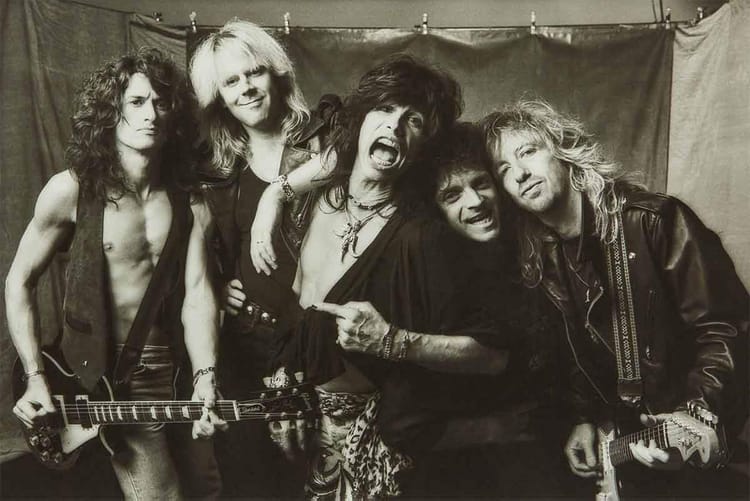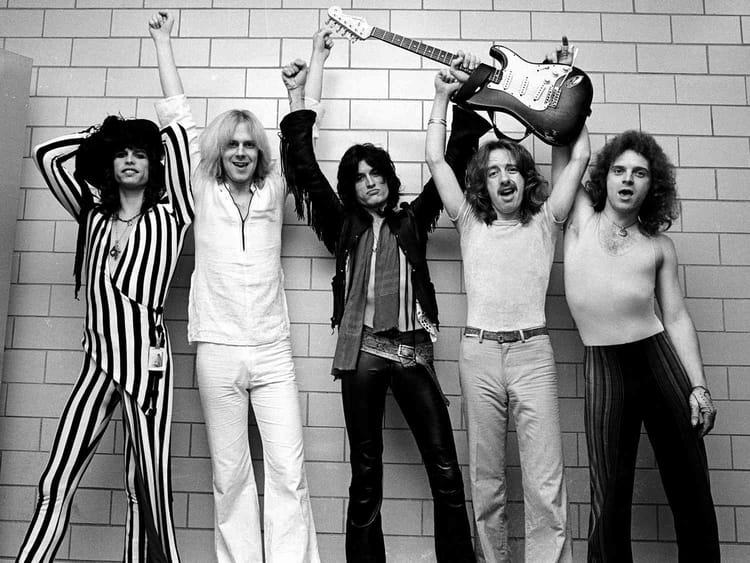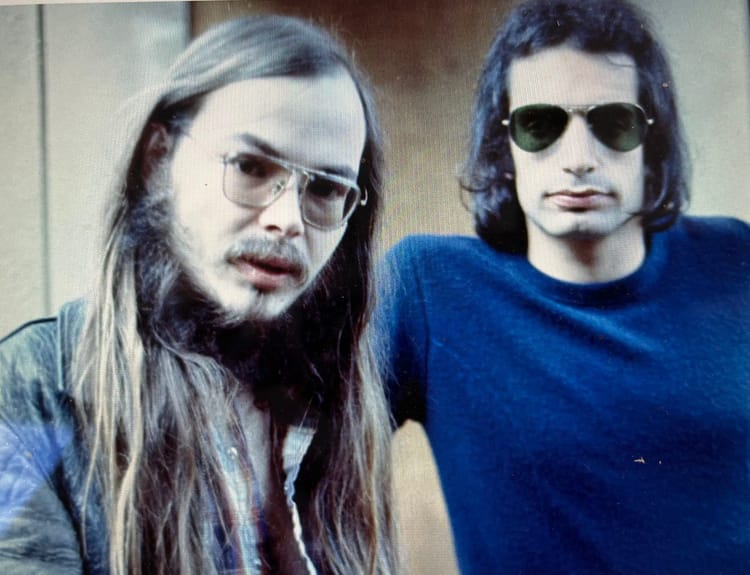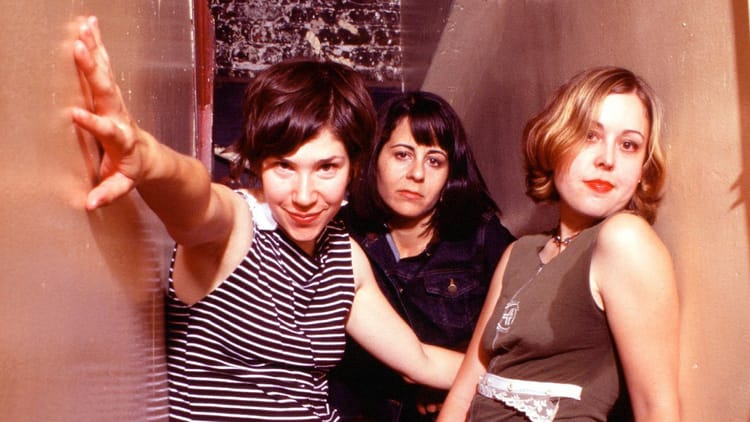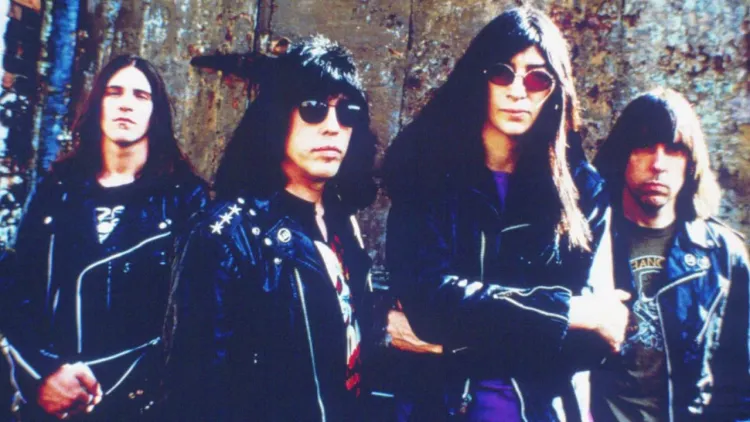Yo La Tengo, pt. 2: Anthony's Album Guide
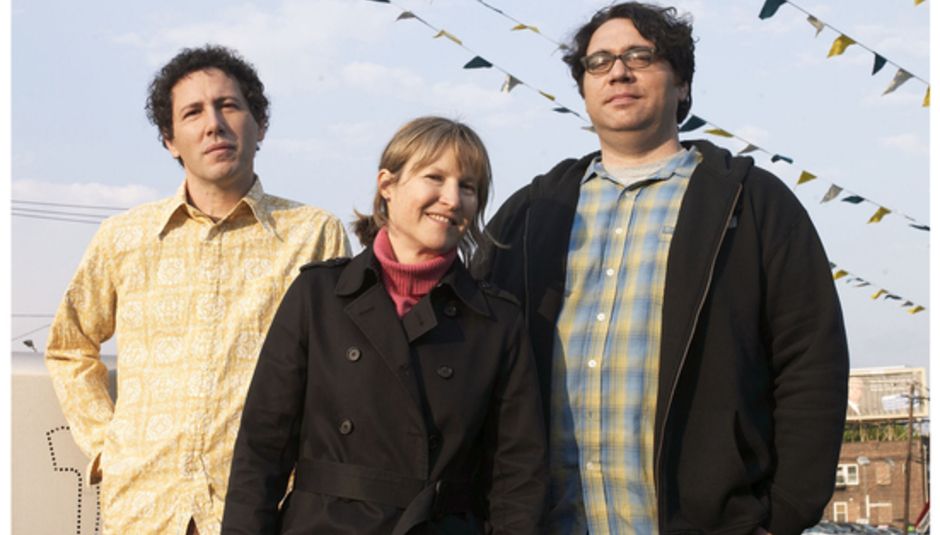
Part 1 is here. My handy dandy profoundly subjective numerical rating scheme is decoded here.
Genius + Love = Yo La Tengo (1996) 7
I Can Hear The Heart Beating As One (1997) 8
Strange But True [Jad Fair and Yo La Tengo] (1998) 5
And Then Nothing Turned Itself Inside-Out (2000) 7
Sounds Of The Sounds Of Science (2002) 5
Summer Sun (2003) 6
V.O.T.E. [Chris Stamey with Yo La Tengo] (2004) 5
Prisoners Of Love: A Smattering Of Scintillating Senescent Songs 1985-2003 (2006) 7
Yo La Tengo Is Murdering The Classics (2006) 7
I Am Not Afraid Of You And I Will Beat Your Ass (2006) 6
Yo La Tengo, finally enjoying a solid line-up - James McNew ensconced as lukewarm water for music nerd power couple Ira Kaplan & Georgia Hubley - kicked off their second decade of long players with Genius + Love = Yo La Tengo, an impressive double-CD of b-sides, compilation cuts and rarities. The second disc - all instrumental - is markedly less essential, save for the thirty-minute drone-and-clang finale “Sunsquashed,” previously a “b-side” on the Upside-Down CD5. While the back half is a good source for college radio background music (I loved back-announcing over the wedding band take on “Blitzkrieg Bop”), mixing the two modes together and letting those lyric-less jingles and jams serve as interludes would have created a more consistently engaging vibe. Y’know, like they do on I Can Hear The Heart Beating As One.
Ah, that canonical classic. The intergenerational touchstone. The sixteen song 2LP (1CD) where the gentle instrumental opener leads to the startling “Moby Octopad,” dangerously close to electronica with its bass-led groove and Bacharach piano loop, but with harmonies and feedback squalls unmistakably confirming the song's author. The band expertly shifts from pedal-hopping to bossanova to lap steel throughout, combining their Electr-O-Pura and Fakebook sides and beyond into an unprecedentedly panoramic sonic summation, James McNew not just finally contributing a lead vocal, but an affecting one, providing a Neil Young voice to go with Ira’s Neil Young guitar (McNew's solo project Dump is an underrated source of record-collector bedroom rock - check out the album of Prince covers!). They even toss in over ten minutes of instrumental organ raga, just because they can. Enthusiasts for London Calling-style mega-albums consider it their peak, but the occasional whiff of genre exercise makes it merely terrific for me.
Yo La Tengo, so cool in the '90s. Bob and David cool.
A year later, a long-hinted at collaboration with Half Japanese vocalist Jad Fair, Strange But True, came out. While more listenable than a lot of Jad Fair solo albums, the “concept” of Jad reading tabloid stories by brother David makes a waste of the promising song fragments the band provides. YLT fans would be better off hearing Half Japanese’s 1993 album Fire In The Sky, with considerably more developed songs, and featuring Ira Kaplan on guitar and Maureen Tucker on drums (they even do “I Heard Her Call My Name!”).
The true follow-up to their marquee moment, And Nothing Turned Itself Inside-Out, is stunning when it isn’t frustrating. The first four songs set up a reflective, vaguely disquieted mood: the ominous “Everyday” followed by “Our Way To Fall,” Ira’s hushed recollection of meeting Georgia. Then the pair harmonize about being half-awake and half-involved on a “Saturday” (with striking percussion from Susie Ibarra), before Georgia turns a Simpsons joke into a vision of schmaltz majesty and horror on “Let’s Save Tony Orlando’s House.” The following pair of quiet songs about Ira’s romantic neurosis is at least one too many (“you don’t want to listen and I can’t seem to shut up” is right), but Georgia saves the day with a charmingly gawky George McRae cover and the lovely “Tears Are In Your Eyes.” If they’d let it end with that and Ira’s six-minute freak-out “Cherry Chapstick,” this might have been a career best. Instead, the album ends with the superfluous samba-pop exercise “Madeline,” the heinously superfluous lounge instrumental “Tired Hippo,” and nearly 18 minutes of jazzy drift called “Night Falls On Hoboken.” While long comfortable with CD-era length (every album once McNew joined was over 45 minutes), the band now seemed to be suffering from CD-era bloat.
If you want to trip with Yo La Tengo and the fishies, but don't have the Criterion channel...you're welcome.
The Sounds Of The Sounds Of Science, a collection of watery instrumentals for a nature documentary, is probably great when paired with outstanding footage of sea creatures (and pot). By itself, it’s recommended to “Tired Hippo” fans. Anyone hoping this space age bachelor pad phase would be out of their system was likely apoplectic over Summer Sun, an hour-long double-down on the back half of And Then Nothing (I sure was!). Either missing the memo about the '00s rock revival or ignoring it, Ira’s guitar was barely heard and he couldn’t seem to shut up. In hindsight, the seething over “Winter A-Go-Go” into “Moonrock Mambo” into a ten-minute “Let’s Be Still” was out of hand (the initial four stars from Rolling Stone turned into two in the following year's record guide). While, yes, this was Grand Royal malarkey five years past the sell-by date, the first half of the album has some low-key delights (particularly the McNew spotlight “Tiny Birds”) before we get a flute solo and Georgia’s conga showcase. If an indulgent, but competent lounge album was the worst since their debut, that says a lot about the bar Yo La Tengo set in between.
The next year found the band awkwardly attempting political outreach, playing get-out-the-vote shows with special guests in unexpected locales. While delighted to not just see them in a capacity-packed central PA bar, but with Dave Schramm taking solos (I hope some bootlegger has his turn on “Little Eyes”!), the most political moment of the all-too-quiet show I witnessed was Ira taking umbrage at a Dick Cheney quote. Please, Kaplan, don't hurt 'em! V.O.T.E., a covers album backing ex-dB Chris Stamey, likely failed to challenge or motivate anyone either. A brief, cute PSA jingle about the need to vote is followed by surprisingly tepid versions of songs political (“Compared To What,” “The Shape Of Things To Come”) and not (“The Summer Sun," “Sleepless Nights”). It’s sad to hear these Hoboken guitar-pop OGs coming off like a lesser Luna, most flagrantly on a peculiarly muted rendition of Television’s “Venus.” Only on the explosive, ten-plus-minute “McCauley Street (Let’s Go Downtown),” an original Stamey wrote for Yo La Tengo, does anyone sound particularly inspired.
It wasn’t a bad time to remind fans of why they were fans in the first place, and Prisoners Of Love: A Smattering Of Scintillating Senescent Songs 1985-2003 provides a solid self-portrait. The compilation may be more chill than feedback fans would prefer, but “Blue Line Swinger” and the second version of “Big Day Coming” are among the tracks that undeniably bring the noise. There’s enough great inclusions from lesser albums and EPs for the 2CD version to almost be worth the purchase (“The River Of Water”! A seven-minute version of Sun Ra’s “Nuclear War” with James McNew hepper than you’d ever dream!). Sadly, the extra rarities on the 3CD don’t quite make up the difference. Unless you’re the kind of fan who might otherwise buy the Camp Yo La Tengo EP for that acoustic version of “Tom Courtenay” and one of their best many-minute mood pieces, “Mr Ameche Plays The Stranger.” In a streamless world, I might be.
A Yo La Tengo WFMU medley that didn't make the cut for Murdering The Classics.
Yo La Tengo Is Murdering The Classics, a grabbag of highlights/lowlights from their annual on-air fundraisers for New Jersey freeform radio utopia WFMU, was ironically as enjoyable as anything else they’d released so far in the ‘00s. The conceit was they’d attempt any song you paid enough to hear, originals costing more than covers. While the outcome is predictably ramshackle, it’s an endearing reminder of what a “music fan’s” band they are in spirit, not just skill. Rather than muttering about a frustrating romantic stand-off over snare brushes and keybs, Ira is hollering “ONE MORE TIME!!!” over barre chords on a cover of “Baseball Altamont” by the Nightmares, likely to get beat up by Jon Anderson fans for what he does to Yes’ “Roundabout,” and remembering more verse lyrics than you’d expect on everything from Petula Clark’s “Downtown” to the Stooges’ “Raw Power.” Rack your brain to guess why James McNew (I think?) yells “give it up for God, whoo!” on a medley based on Junior Walker’s “Shotgun” with the Knack’s “My Sharona” before the exclamation and Sonic Youth’s “Schizophrenia” after it. The answer rules. Thirty songs (or at least song attempts) in just over an hour is a lot, but so was thirteen on Summer Sun.
Either tired of autumnal boogie bops or grasping that fans were, the next Real Deal Album announced I Am Not Afraid Of You And I Will Beat Your Ass, kicking off with 11 minutes of squealing guitar heroics named “Pass The Hatchet, I Think I’m Goodkind.” While it’s their liveliest album since I Can Hear The Heart Beating As One, it’s also a little I Can Still Hear The Heart Beating As One, yet another 1CD/2LP (for lovers of ‘60s music, YLT sure aren’t fans of ‘60s record lengths!) leaping from genre to genre just to show they can. More often than not, whether it’s a Motown tribute, a garage-punk bash or a many-minute mood piece, they could have faded out halfway through the song with little loss. Once again, James McNew’s vocal turn gets the gold medal; “Black Flowers” is a better orchestral Neil Young ballad than any of Neil’s. Did he not want to put a second or third song on here? Doubt anybody on this side of the stereo would have minded.
Up next: Part 3, in which inertia is - eventually - overcome.
